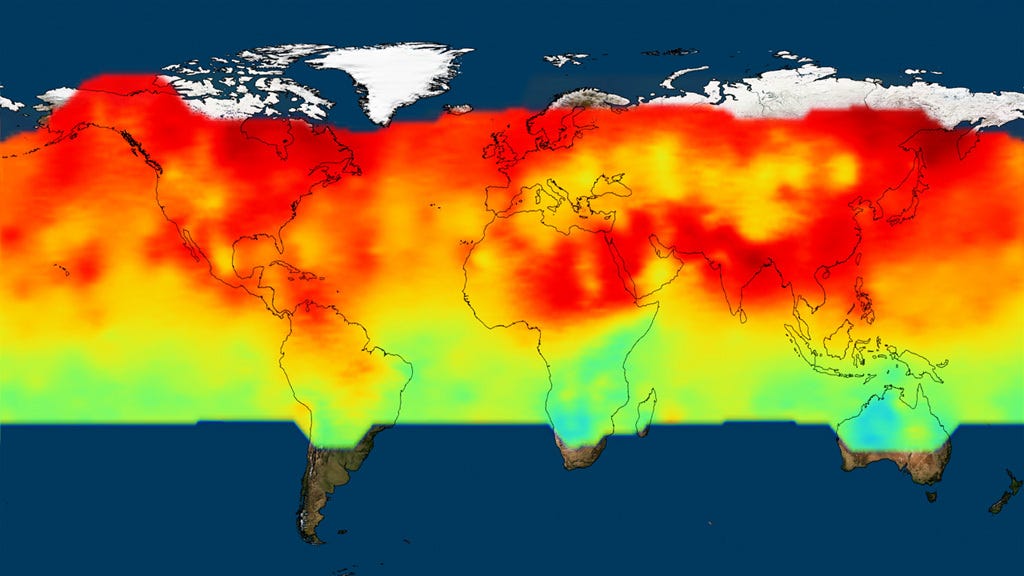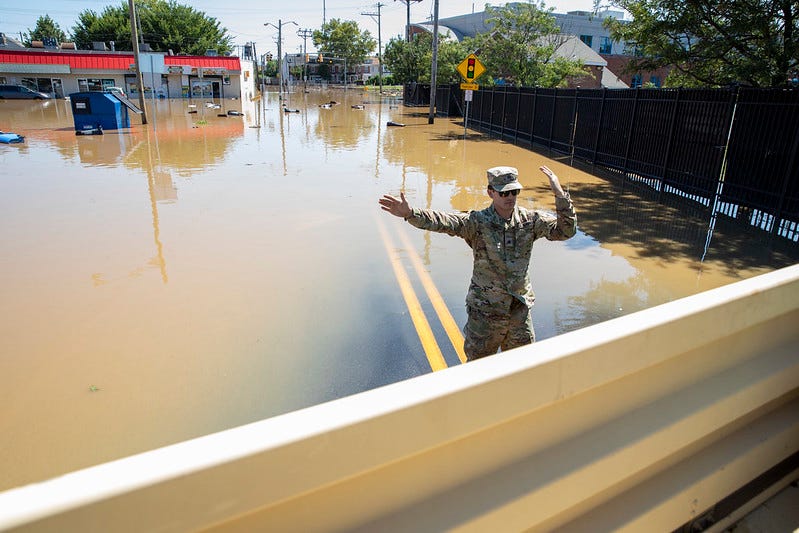Climate role in Britain's July 4 election a test for U.S.
Welcome to Callaway Climate Insights. The general election in the UK in six weeks will test the enthusiasm for voters for climate innovation over energy security.
Today’s edition is free. To get this newsletter every day of the week, subscribe now.

Neither British Prime Minister Rishi Sunak nor Labour Party challenger and front-runner Keir Starmer are in line for any climate-fighter awards. Both talk a good game about Britain’s potential to lead the European climate battle while either cutting funding for existing clean energy projects or slashing forecasts for future campaigns.
The snap general election set for July 4 — a date sure to trigger an Internet meme bonanza — will instead be fought on energy security issues. Who can promise to keep energy bills the lowest in a world of rising heat, pounding rain, inflation, and a menacing Russia on the oil and natural gas front.
But the British public’s appetite for climate attention from its leaders is at an all-time high, and neither of the candidates can afford to ignore it. Expect a lot of talk about past success or future investment in wind, solar, and EVs, with absolutely no promises or concrete plans whatsoever.
Starmer, with a 30-point lead in the polls and set to lead in a Labour government for the first time in 14 years, in particular has an opportunity to distance himself from Sunak over climate by pushing for more clean energy investment. But he recently backtracked on a £28 billion ($36 billion) green investment program pledge by Labour in what was described as the biggest U-turn since he’s led the party. At a time of inflation and tight finances, no candidate is going to promise new spending.
For President Joe Biden and Donald Trump, the reaction of British voters could well dictate how they position their campaigns in the final months before the U.S. election in November. Trump’s recent dalliance with oil executives, which at least one pundit compared to the infamous Teapot Dome scandal of the Warren G. Harding administration 100 years ago, is further defining the climate dividing line right down the middle of American culture wars. And Biden’s free spending on climate initiatives may be scaled back if the British vote shows concern.
With the Brits going first, there will be lots of lessons to draw from the six-week election sprint starting this week. Unfortunately, despite what’s at stake, there won’t be much in it for British voters on climate no matter who wins on American Independence Day.
Don’t forget to contact me directly if you have suggestions or ideas at dcallaway@callawayclimateinsights.com.
Follow us . . . .
Twitter | LinkedIn | Facebook | Instagram
As snow level plunges in Andes, ski resorts and movies get creative
. . . . When Spanish director Juan Antonio Bayona set out to film “Society of the Snow,” he wanted it to seem as real-life as possible to the actual events that took place 50 years ago when a plane carrying 45 Uruguayan rugby players and crew crash landed on a glacier between Argentina and Chile. Trouble is, writes Michael Molinski, there’s no longer any snow there. A 30% decline in snow in the Andes is causing problems not just for moviemakers, but ski resorts and anyone who makes a living tied to winter. Snowmaking can only go so far and like in so many other mountainous regions around the world, livelihoods in Chile and Argentina are being threatened with each passing season. . . .
Thursday’s subscriber insights
Warming grows more deadly as it roils ‘clear air’ turbulence
. . . . This week, a London-to-Singapore flight hit severe turbulence. One man died, 71 people were injured, and the Singapore Airlines flight was diverted to Bangkok. An isolated incident? Not if climate change gets worse. A report has details. Read more here. . . .
EV slowdown brakes banks’ green ambitions
. . . . Slowing EV sales, especially in the U.S., are not just hitting the car companies. Lenders and investors are getting antsy and suppliers of batteries and critical minerals are biting their nails. And it’s all complicated by China. Here’s what’s going on. Read more here. . . .
Editor’s picks: Hurricane season picks up; plus, global carbon pricing revenues top $100 billion

More hurricanes than normal expected this year
La Nina and warmer-than-average ocean temperatures are driving the odds of above-normal hurricane activity in the Atlantic basin this year. NOAA National Weather Service forecasters at the Climate Prediction Center on Thursday said the outlook for the 2024 Atlantic hurricane season, which runs from June through November, predicts an 85% chance of an above-normal season, a 10% chance of a near-normal season and a 5% chance of a below-normal season. NOAA is forecasting a range of 17 to 25 total named storms (winds of 39 mph or higher). Of those, 8 to 13 are forecast to become hurricanes (winds of 74 mph or higher), including 4 to 7 major hurricanes (category 3, 4 or 5; with winds of 111 mph or higher). Forecasters have a 70% confidence in these ranges. The upcoming Atlantic hurricane season is expected to have above-normal activity due near-record warm ocean temperatures in the Atlantic Ocean, development of La Nina conditions in the Pacific, reduced Atlantic trade winds and less wind shear, all of which tend to favor tropical storm formation.
Global carbon pricing revenues top $100 billion
Carbon pricing revenues reached a record $104 billion last year, according to the World Bank’s annual State and Trends of Carbon Pricing 2024 report. The World Bank says there are now 75 carbon pricing instruments in operation worldwide. More than half of the collected revenue was used to fund climate and nature-related programs. Despite record revenues and growth, global carbon price coverage and levels remain too low to meet the Paris Agreement goals. Currently, the report says, less than 1% of global greenhouse emissions are covered by a direct carbon price at or above the range recommended to limit temperature rise to well below 2ºC. The report notes that closing the implementation gap between countries’ climate commitments and policies will require much greater political commitment.
Latest findings: New research, studies and projects

Paper: Investment won’t be enough
There is a “fundamental misalignment between the existing international investment regime — including its centerpiece: investor-state arbitration — and the actions needed to meet the objectives of the international climate regime and avoid catastrophic climate change,” says the author of this paper titled Climate Action Needs Investment Governance, Not Investment Protection and Arbitration. From the abstract: Existing investment treaties do not and cannot advance climate goals. For international investment law to support climate goals, a new regime is needed for investment governance, not investment protection and arbitration. Author: Martin Dietrich Brauch, Columbia University - Columbia Center on Sustainable Investment
More of the latest research:
Words to live by . . . .
“Climate change at this moment is a road to death.” — Pope Francis, speaking to CBS’s Norah O’Donnell.




